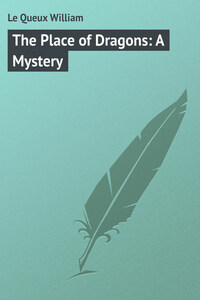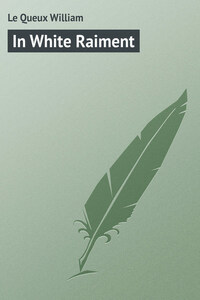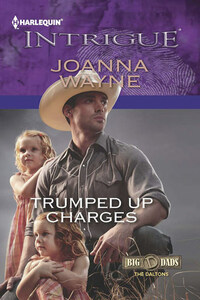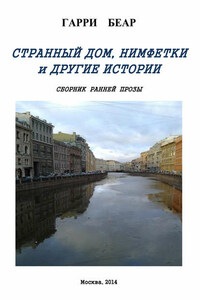CHAPTER I
PRESENTS A PROBLEM
"Curious affair, isn't it?"
"Very."
"Now, you're a bit of a mystery-monger, Vidal. What's your theory – eh?"
"I haven't one," I replied with a smile.
"I knew the old boy quite well by sight. Didn't you?" asked my friend, Major Keppell, as we stood gossiping together in the doorway of the Hôtel de Paris, high up on the cliff opposite the pier at Cromer.
"Perfectly. His habit was to go down the slope yonder, to the pier each morning at ten, and to remain there till eleven," I said. "I used to watch him every morning. He went as regularly as the clock, wet or fine."
"A bit eccentric, I thought," remarked the Major, standing astride in his rough golfing clothes, and puffing at his briar pipe. "Quite a character for a novel – eh?" and he laughed. "You'll do a book about this strange affair – what?"
I shrugged my shoulders and smiled, as I replied: "Not very likely, I think. Yet the circumstances are, to say the least, extremely curious."
"They are, from all I hear," said my friend. Then, glancing at his wristlet watch, he exclaimed: "By Jove! – nearly seven! I must get in and dress for dinner. See you later."
With this he passed through the swing-doors of the hotel, leaving me standing upon the short sweep of gravel gazing out upon the summer sea, golden in the glorious June sunset.
The Major had spoken the truth. A discovery had been made in Cromer that morning which possessed many remarkable features, and to me, an investigator of crime, it presented an extremely interesting problem – one such as I, Herbert Vidal, had never before heard of.
Briefly related, the facts were as follows. Early in February – four months before – there had arrived in Cromer a queer, wizened, little old man named Vernon Gregory. He was accompanied by his nephew, a rather dandified, overdressed young fellow of twenty-three, named Edward Craig.
Strangers are very few in Cromer in winter, and therefore Mrs. Dean, landlady of Beacon House, on the West Cliff, a few doors west of the Hôtel de Paris, where the asphalted footpath runs along the top of the cliff, was very glad to let the new-comers the first-floor front sitting-room with two bedrooms above.
In winter and spring, Cromer, high and bleak, and swept by the wild, howling winds from the grey North Sea, its beach white with the spume of storm, is practically deserted. The hotels, with the exception of the Paris, are closed, the boarding-houses are mostly shut, and the landladies who let apartments wait weeks and weeks in vain for the arrival of a chance visitor. In August, however, the place overflows with visitors, all of the best class, and for six weeks each year Cromer becomes one of the gayest little towns on the breezy East Coast.
So, all through the spring, with its grey, wet days, when the spindrift swept in a haze across the promenade, old Mr. Gregory was a familiar figure taking his daily walk, no matter how inclement the weather.
In appearance he was unusual, and seedy. His bony face was long, thin, and grey; a countenance that was broad at the brow and narrowed to a pointed chin. He had a longish white beard, yet his deep-set eyes with their big bushy brows were so dark and piercing that the fire of youth seemed still to burn within them. He was of medium height, rather round-shouldered, and walked with a decided limp, aided by a stout ash stick. Invariably he wore an old, dark grey, mackintosh cape, very greasy at the collar; black trousers, old and baggy; boots very down at heel; and on his mass of long white hair a broad-brimmed felt hat, which gave him the appearance of a musician, or an artist.
Sometimes, on rare occasions, his well-dressed nephew walked with him – but very seldom were they together.
Craig was a tall, well-set-up young fellow, who generally wore a drab golf-suit, smoked cigarettes eternally, and frequently played billiards at the Red Lion. He was also a golfer and well known on the links for the excellence of his play.
Between uncle and nephew there was nothing in common. Craig had dropped a hint that he was down there with his relative "just to look after the old boy." He undoubtedly preferred London life, and it was stated that a few years before he had succeeded to a large estate somewhere on the Welsh border.
The residents of Cromer are as inquisitive as those of most small towns. Therefore, it was not very long after the arrival of this curious couple, that everybody knew that old Mr. Gregory was concealing the fact that he was head of the famous Sheffield armour-plate making firm, Messrs. Gregory and Thorpe, though he now took but little part in the active work of the world-famed house that rolled plates for Britain's mighty "Dreadnoughts."
Cromer, on learning his identity, at once regarded old Gregory's queer figure with due reverence. His parsimonious ways, the clockwork regularity with which he took his morning walk, bought his daily paper at Munday's Library, and took his afternoon stroll up past the coast-guard station, or towards the links, or along the Overstrand or Sheringham roads, were looked upon as the eccentricities of an immensely wealthy man.














